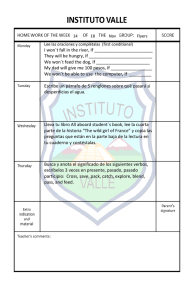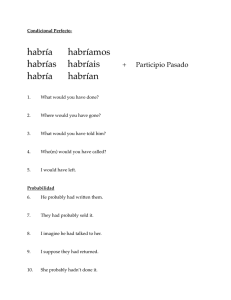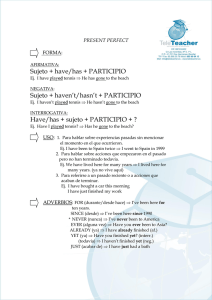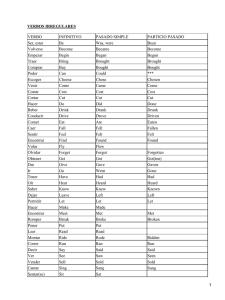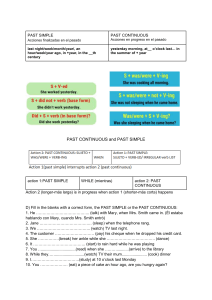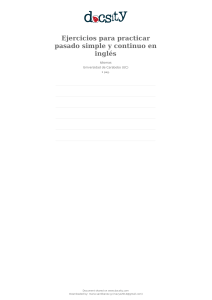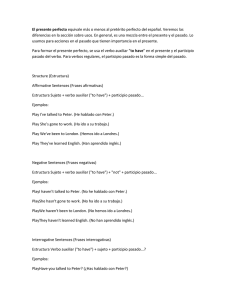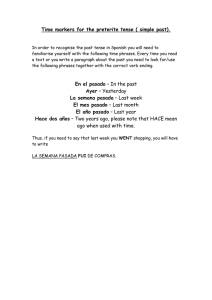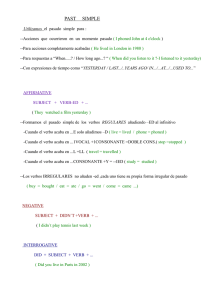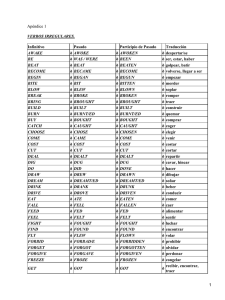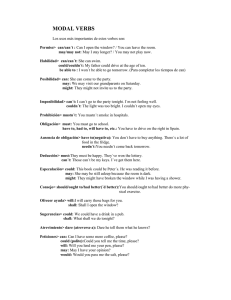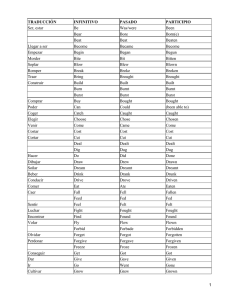Present perfect Order the following words to make
Anuncio
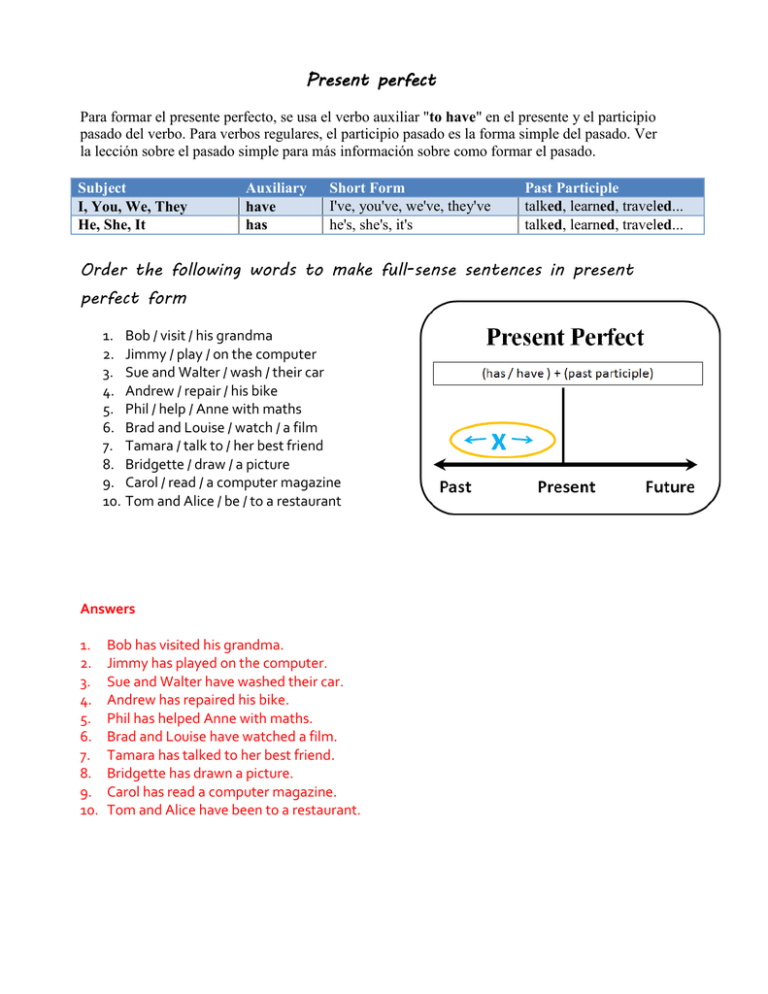
Present perfect Para formar el presente perfecto, se usa el verbo auxiliar "to have" en el presente y el participio pasado del verbo. Para verbos regulares, el participio pasado es la forma simple del pasado. Ver la lección sobre el pasado simple para más información sobre como formar el pasado. Subject I, You, We, They He, She, It Auxiliary have has Short Form I've, you've, we've, they've he's, she's, it's Past Participle talked, learned, traveled... talked, learned, traveled... Order the following words to make full-sense sentences in present perfect form 1. Bob / visit / his grandma 2. Jimmy / play / on the computer 3. Sue and Walter / wash / their car 4. Andrew / repair / his bike 5. Phil / help / Anne with maths 6. Brad and Louise / watch / a film 7. Tamara / talk to / her best friend 8. Bridgette / draw / a picture 9. Carol / read / a computer magazine 10. Tom and Alice / be / to a restaurant Answers 1. 2. 3. 4. 5. 6. 7. 8. 9. 10. Bob has visited his grandma. Jimmy has played on the computer. Sue and Walter have washed their car. Andrew has repaired his bike. Phil has helped Anne with maths. Brad and Louise have watched a film. Tamara has talked to her best friend. Bridgette has drawn a picture. Carol has read a computer magazine. Tom and Alice have been to a restaurant.
